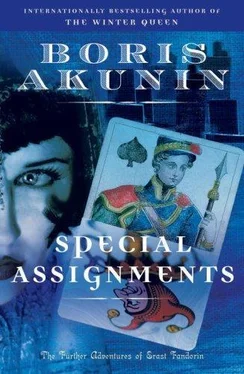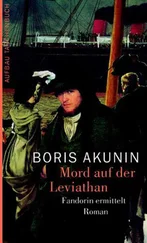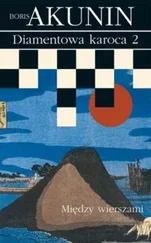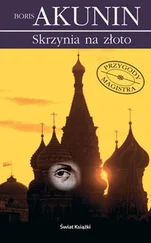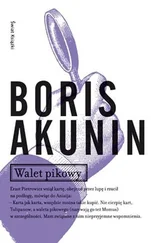Anisii immediately broke into a nervous sweat and said uncertainly: 'Who knows, Your Honour, who it was that actually sent them - those telegrams.'
'That's what I think too,' the State Counsellor said approvingly, and Tulipov instandy breathed a sigh of relief. Anyone at all who knew the names of the St Petersburg correspondents could have sent a telegram from anywhere at all... Oh, and by the way. Don't call me "Your Honour"; we're not in the army, after all. First name and patronymic will do, or ... or just call me "Chief" - it's shorter and easier.' Fandorin smiled grimly at something or other and continued with the 'analysis'. 'Look here - we're getting somewhere. A certain cunning individual, who has simply found out the names of a few correspondents (which requires no more than leafing through the newspapers), sends off telegrams to the newspaper offices about the arrival of a German prince, and after that everything simply follows its own course. Reporters meet "His Highness" at the station, Russian Thought prints an interview, in which the honoured guest expresses extremely bold opinions on the Baltic question, categorically distancing himself from Bismarck's political line, and there you have it. Moscow is conquered, our patriots accept the duke with open arms. Ah, the press - how few people in Russia realise how powerful it really is ... Right, then, Tulipov; now we move on to our conclusions.'
When the Court Counsellor, or 'Chief, paused, Anisii felt afraid that he would have to draw the conclusions, and the poor courier's head was suddenly full of formless mist.
But no, Mr Fandorin managed without Anisii's assistance. He strode energetically across the study, clattered his beads rapidly and then clasped his hands behind his back.
'The membership of the Jack of Spades gang is unknown. There are at least three men involved: "Speier", the "Notary" and the "Duke". That is one. They are brazenly insolent, highly inventive and incredibly self-assured. That is t-two. There are no tracks to follow. That is three . . .' Erast Petrovich paused for a moment and concluded quietly, almost even stealthily: 'But there are certain clues, and that is four.'
'Really?' Anisii asked eagerly. He had been feeling dejected, expecting a quite different conclusion: This is hopeless, Tulipov, so you can go back to your courier's job.
'I think so. The "jacks" are firmly convinced that they have got away with it, and most likely that means they will want to play another prank or two. That is one. Even before this business with Lord Pitsbrook they managed to pull off two highly successful and extremely daring hoaxes. Both times they came away with plenty of money, both times they had the effrontery to leave their calling card, but they never even thought of gathering up their substantial trophies and leaving Moscow. So now ... Would you like a cigar?' The Court Counsellor clicked open the lid of an ebony casket standing on the desk.
Although, for reasons of economy, Anisii did not use tobacco, he could not resist and took one - the slim, neat, chocolate-coloured cigars looked so very appetising, with their red and gold labels. Imitating Erast Petrovich, he smacked his lips as he kindled the flame into life and prepared to experience a heavenly bliss that was the exclusive prerogative of rich gentlemen. He had seen cigars like this on Kuznetsky Most, in the window of Sychov's Colonial Shop - at one and a half roubles apiece.
'The next point,' Fandorin continued, 'is that the "jacks" use the same methods repeatedly. That is two. In both the business with the "Duke" and the episode with the "notary" they exploited the natural human propensity to trust the printed word. Well, all right, never mind His Lordship. The English are used to t-trusting everything that The Times p-prints. But look what fine informants our Moscow newspapers are ... First they inform the citizens of Moscow about "His Highness's" arrival, then they go on to create a ballyhoo and fill everyone's head with nonsense ... Tulipov, you don't inhale a cigar!'
But it was too late. Having completed his thoroughgoing preparations Anisii breathed in and filled his chest with the astringent smoke that was prickling the roof of his mouth. The light dimmed and poor Tulipov felt as if his insides had been ripped open with a file. He doubled up, coughing and choking and feeling that he was about to die on the spot.
Having revived him (with the help of water from the carafe and energetic slaps to Anisii's skinny back), Fandorin summed up briefly: 'Our job is to keep our eyes peeled.'
And now Tulipov had been keeping his eyes peeled for a week. In the morning, on the way to his most enviable job, he bought a full set of Moscow's various newspapers. He marked everything that was remarkable or unusual in them and reported to his 'chief over lunch.
Lunch deserves a special mention. When the Countess was in good spirits and came to the table, the food served was exquisite -dishes delivered from the Ertele French restaurant: some kind of chaud-froid with snipe and truffles, salat Romain, macedoine in melon and other culinary miracles that Anisii had never even heard of before. But if Addy had spent the morning feeling miserable in her boudoir or had gone out to unwind in the haberdashery and perfumery shops, then Masa seized power in the dining room, and things assumed a quite different complexion. Fandorin's valet went to the Japanese and Chinese shop on the Petrovsky Lanes and brought back unsalted rice, marinated radishes, crunchy seaweed that tasted like paper and sweet fried fish. The Court Counsellor ate all this poison with obvious relish, and Masa gave Anisii tea, a fresh bagel and sausage. To tell the truth, Tulipov greatly preferred this kind of meal, because in the presence of the lovely but capricious Countess, he was so completely overwhelmed that he was unable to appreciate the wonderful delicacies properly anyway.
Erast Petrovich listened attentively to the results of Tulipov's morning research. He dismissed the greater part out of hand and agreed to bear the remainder in mind. In the afternoon they separated to verify the facts: Anisii checked the suspicious announcements and his chief checked the important individuals who had arrived in Moscow (on the pretext of bringing them greetings from the Governor-General; he took a close look to make sure they were not impostors).
So far it had all come to nothing, but Anisii was not dispirited. He would gladly have carried on working like this for ever.
That morning Sonya had a stomach ache - she must have been gnawing the lime from the stove again - and so Tulipov had no time for breakfast at home. He wasn't given any coffee in the Chief's house either - it was a 'loud' day. Anisii sat quietly in the study, leafing through the newspapers and, as luck would have it, his eyes kept stumbling across advertisements for all kinds of food.
'Safatov's shop on Sretenka Street has received a delivery of the exceptionally tender salted beef known as "Entrecote", he read, even though the information was of no use to him. At 16 kops a pound, all lean meat, it can replace ham of the very highest sort.'
All in all, he barely survived until lunch, and he wolfed down his bagel as he reported on the day's catch to Erast Petrovich.
On that day, 11 February 1886, the number of new arrivals was small: five military generals and seven counsellors of state. The Chief marked down two to be visited: the head of the naval quartermaster service, Rear-Admiral von Bombe, and the head of the state treasury, Privy Counsellor Svinin.
Then Tulipov moved on to the more interesting subject of unusual announcements.
'By decision of the Municipal Duma,' he read out, with significant pauses, 'two shop-owners from the Municipal Arcade on Red Square are to be invited to a consultation on the establishment of a joint-stock company for the purpose of rebuilding the Municipal Arcade and erecting on its current site an emporium with a glass dome.'
Читать дальше
